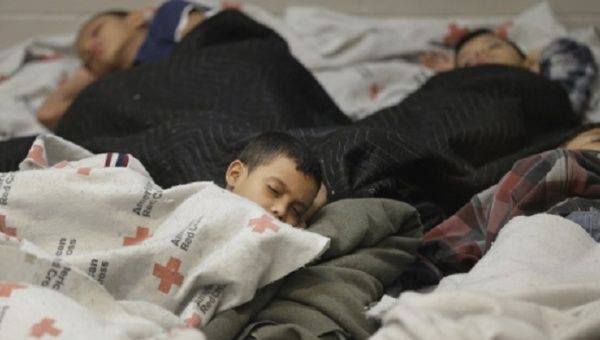UNITED STATES—In the past week, several immigration stories took the internet by storm. People flooded social media with #WhereAreTheChildren tweets, demanding to know why the United States instituted a policy of separating children from their parents and why the U.S. promptly lost track of them.
The first immigration story involved the Trump administration’s new initiative to prosecute illegal (and sometimes legal) immigrants at the US-Mexico border. The second story involves 1,475 migrant children that the United States Department of Health and Human Services lost track of. These stories are explained below.
In May, the Trump administration announced an effort to ramp up the prosecution of illegal immigration. The plan, to be implemented by the Department of Justice and the Department of Homeland Security, includes a zero-tolerance policy—if a person crosses into the United States illegally, they will be open to prosecution and possible criminal charges.
“If you cross the Southwest border unlawfully, then we will prosecute you. It’s that simple,” said US Attorney General Jeff Sessions.
Under Sessions’ instruction, 18 more judges and 35 additional prosecutors have been sent to the US-Mexico border to aid in the backlog of cases that will result from this tighter policy.
During the unveiling of this policy, the Trump administration announced that adults traveling with children would be separated from each other, marking a departure from preexisting policy. Previously, children were only taken from their parents if they were thought to be in danger or if there was doubt as to whether their accompanying adult was really a parent or legal guardian.
“If you smuggle illegal aliens across our border, then we will prosecute you. If you are smuggling a child, then we will prosecute you, and that child will be separated from you as required by law. If you don’t like that, then don’t smuggle children over our border,” Sessions stated in May.
Many experts argue that the policy is too broadly crafted. Not only will people attempting to cross illegally be subjected to the administration’s prosecution, but people seeking asylum will be exposed to the policy. Individuals fleeing violence and political upheaval in Central and South America might be separated from their children at the border. The policy may deter illegal immigration, but it may deter and/or harm legal asylum seekers.
Cecilia Munoz, the domestic policy director under President Obama stated in an NPR interview, “In many cases, these are people who are fleeing because of violence in their home country. The responsibility of the United States under the law is to determine who has a well-founded fear, who might qualify for political asylum. That’s a hard job to do to sort out folks who might be economic migrants from folks who might be in danger.”
“But our job is to make sure that we protect people who are in danger. What this administration has chosen to do instead is to terrorize these families in the hope,” Munoz added.
President Trump stated that the policy of separating children at the border should be attributed to Democrats. “Put pressure on the Democrats to end the horrible law that separates children from their parents once they cross the Border into the U.S,” tweeted President Trump on May 26.
The Trump administration enacted the new policy, not the Democrats and at present, there is no statutory obligation to separate families at the border. Under the administration’s new policy, children will be put in the custody of Health and Human Services’ Office of Refugee Resettlement.
During an April 2018 Senate committee hearing, a Department of Health and Human Services official indicated that the agency had lost track of 1,475 migrant children after they were placed with adult sponsors. These children were not taken away from their parents. They arrived at the border as unaccompanied minors.
HHS argues that they do not have a legal obligation to track the children after its Office of Refugee Resettlement places them with appropriate adult sponsors. They decided to do a phone survey of children they housed and some of those children declined to respond to the survey.
“These children are not ‘lost’; their sponsors—who are usually parents or family members and in all cases have been vetted for criminality and ability to provide for them—simply did not respond or could not be reached when this voluntary call was made,” said Health and Human Services Deputy Secretary Eric Hargan as he pushed back on the news coverage surrounding the 1,475 children.






